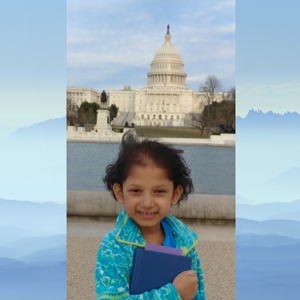Two Alaskan families have helped achieve an amazing feat. The Brubakers and Wentzels have every legislator in their state co-sponsoring the Ensuring Lasting Smiles Act (ELSA)!
It’s true that their geographically large state has a smaller delegation with just two senators and one representative. But, all three Republican legislators have signed on because these families persistently led the advocacy effort in their state. This month, we shine our volunteer spotlight on these Alaskans to celebrate their accomplishments and learn more about how they did it.
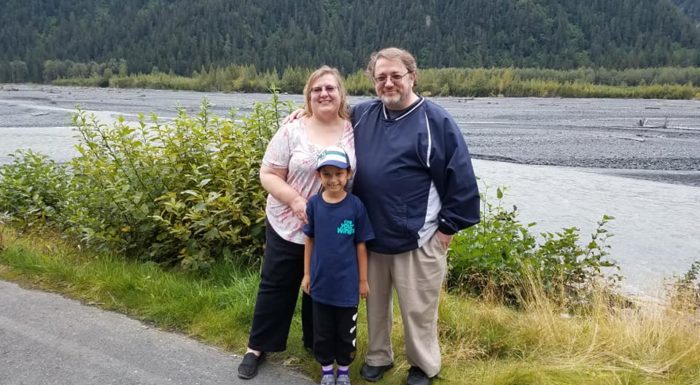
The Brubakers 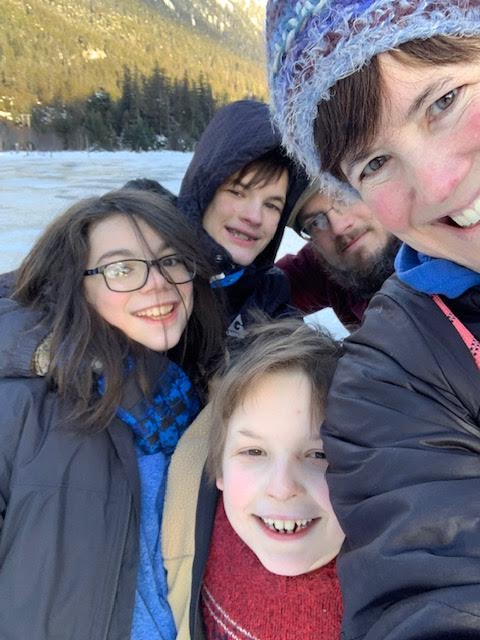
The Wentzels
Brian and Amber Brubaker live in Anchorage with their 11-year-old daughter, Emily, and three chickens. Emily is affected by the autosomal recessive form (EDAR) of hypohidrotic ectodermal dysplasia (HED). A thousand miles away in Sitka, Melissa and Forrest Wentzel live with their children, Caellum, Keirnan and Connor. Two of their sons are affected by x-linked hypohidrotic ectodermal dysplasia (XLHED). Their isolated community is only reachable by plane or boat.
Share a little about the project(s) you worked on for the NFED.
Melissa: I have worked on ELSA advocacy, nationally and statewide. I have served as the Alaska State Lead. I ran an educational outreach effort in Southeast Alaska. I also volunteered at the Family Conference in 2019.
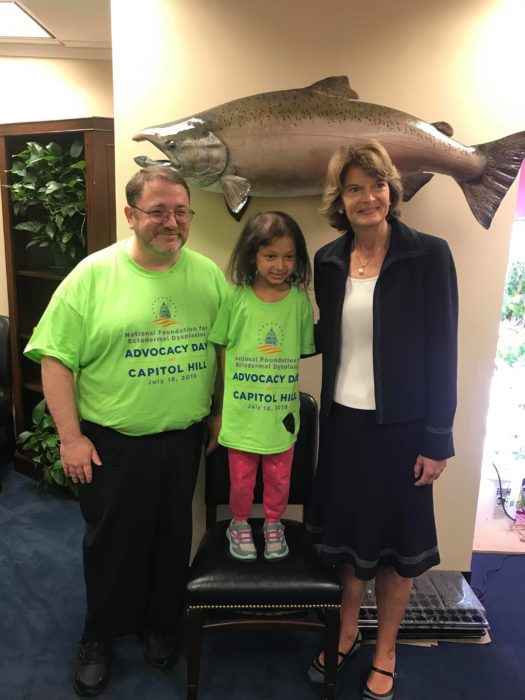
Brian and Amber: One February, we did a pancake fundraiser for the NFED at our church. Lately, we have been participating in legislative advocacy for NFED. We attended the 2nd NFED Advocacy Day on Capitol Hill in D.C., and we were very fortunate to meet Sen. Lisa Murkowski (R-AK) at that event! We got to do a news story on Channel 2 News about ELSA and how our delegation was co-sponsoring the bill. We participate in Rare Disease Advocacy Week. It gives us another chance to talk about ELSA with our congressional delegation and their staff. We have met a lot of local people who have other rare diseases through that.
What did you do to achieve 100% ELSA sponsorship in Alaska?
Melissa: Achieving 100% ELSA sponsorship in Alaska was a team effort. We, and our other Alaska families, advocated with our congressional delegation frequently and in numerous contexts. We are lucky in Alaska in that we have fairly easy access to our delegation. While Alaska is the largest state in the nation, geographically, socially, we are very small. Our senators and congressmen and members of our state legislature live and work among us. They travel among our communities, march in our small town parades, and their children go to our schools. Thus, we feel entitled to reach out to them.
Democracy in Alaska is very much participatory. Our family, as well as our other Alaska families, lobbied Senators Murkowski and Dan Sullivan (R-AK), Congressman Don Young (R-AK), and our legislature often. We wrote letters, spoke with them on the phone and over video conference through our Legislative Information Office, left voicemails, linked them with them in Facebook advocacy, cornered them at Alaska Day parades, and met with them in cafes. I repeatedly thanked them for their support, in letters and verbally. Advocating is all about building relationships.
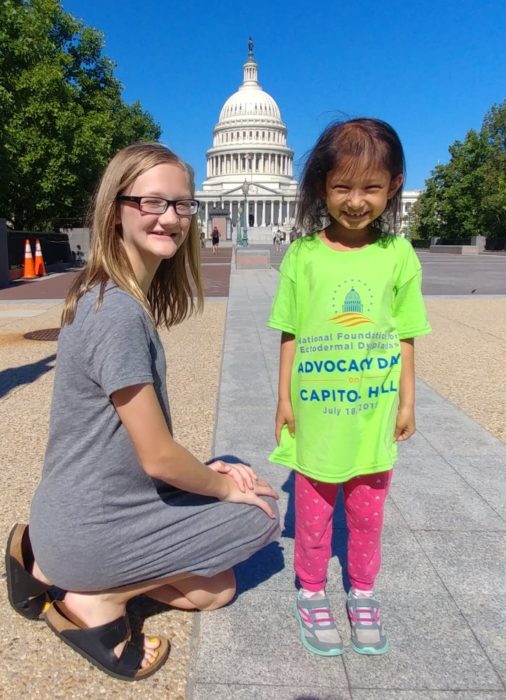
Brian and Amber: The first time we talked about ELSA with our congressional delegation and their staff was at the 2nd NFED Advocacy Day on Capitol Hill in D.C. in the summer of 2018. The NFED gave us a grant to help with the travel expenses and Emily and I attended. We were teamed up with the Steele family from Iowa for our meetings. We were very fortunate to meet Sen. Murkowski in person at that event! She is on a key committee (U.S. Senate Committee on Health, Education, Labor and Pensions, to which ELSA is assigned) and became one of the earliest co-sponsors. Then in February 2019, Amber had a work event in D.C. and Emily and I came along. While we were there, we met with Sen. Sullivan’s staff and shared our story. Later, Sen. Sullivan also agreed to co-sponsor. Rep. Don Young agreed to co-sponsor in response to a letter from Melissa Wentzel later in 2019.
What prompted you to volunteer for the NFED?
Melissa: Finding a diagnosis for our oldest child was a long and painful process. Providers didn’t know what they were looking at. They thought that because his teeth were pegged, few and far between, and prone to cavities that we were abusing or neglecting him. Children called him “Shark Boy.” He struggled with speech, digestion, frequent respiratory illnesses, sinus infections, persistent anemia, contracted rare diseases and almost died at nine months from another rare congenital condition.
None of our providers knew what they were looking at. We brought him to a pediatric dentist in Seattle, but they didn’t have any answers. And they told him his teeth were “weird.” It wasn’t until a visiting pediatric dentist in Sitka said, “I think your son has ectodermal dysplasia,” that we began to have some hope. I’ll never forget the moment she told our son he had “really interesting and wonderful teeth.” I cried.
The dentist consulted with our pediatrician, who then educated himself on ectodermal dysplasia, and we developed a treatment plan. I will always feel grateful for that dentist and for our pediatrician’s willingness to educate himself. But still, our providers didn’t really understand HED, or how our son’s various medical and dental struggles were linked. We had to educate ourselves, so that we could advocate for our child with medical providers, dentists, and the school district.
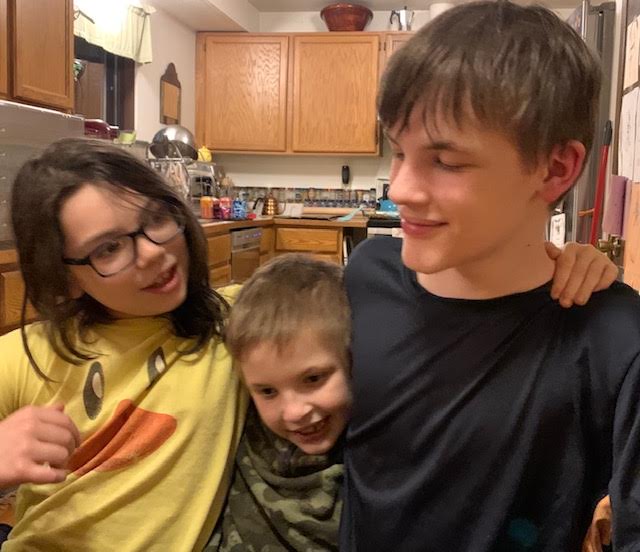
That’s why I turned to the NFED. They had answers and support. Eventually, our third and last child was born, and he was just like our first. This time, we knew what we were looking at, we knew how to help him, we knew how to find support.
Brian and Amber: Emily is the first member of our family to be diagnosed with ectodermal dysplasia and we wanted to learn more about it and meet others who have it, since we don’t know many people locally.
What was the most powerful moment you had while volunteering for the NFED?
Melissa: My most powerful moment was my son’s most powerful moment at the 2019 Family Conference. We were participating in one of the sessions in the main conference room. The topic of conversation was about psychosocial impacts of ectodermal dysplasia. My son, who was 10 at the time, stood up and in front of the entire room spoke about being bullied about his teeth, facial features, and small stature. And then he spoke about anxiety and how he was learning to love himself at the Family Conference. We both cried. I am crying now, remembering.
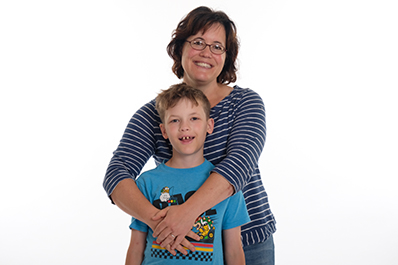
That is why I took him to the Family Conference. He needed to be surrounded by unconditional love and acceptance. He needed to be with others who could share his experience in some way. He needed to feel like he belonged. It changed his life. He is now a confident 13-year-old who performs in plays and has a strong friend group. He wants to be an actor when he grows up.
Brian and Amber: I think attending the Family Conference and visiting with other families after the 2nd NFED Advocacy Day on Capitol Hill were our biggest moments, because they helped us realize that even though geographically we are far away, we’re not alone in facing challenges and we have a lot of support and fellowship to rely on.
What was the most challenging?
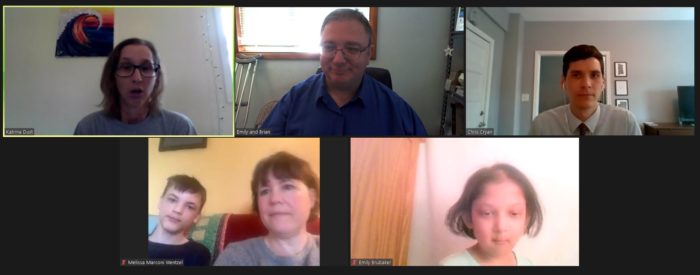
Melissa: It has been challenging finding time in my schedule to volunteer. I want to do more, but I have been juggling multiple life roles (as everyone has). Now that I am no longer in graduate school, I look forward to participating in more NFED programs and projects.




Brian and Amber: What has been challenging with the advocacy is keeping up the interest in ELSA and sustaining the effort over many legislative sessions – especially with everything remote due to COVID and competing for attention with other high profile issues. Emily’s dental work hasn’t really gotten too expensive (yet)! We try to maintain relationships with the legislative staff, and there is turnover, so we have to really keep working to do that with letters, some local visits and zoom advocacy events. We try to stay focused on Emily’s story and how ELSA will help, and keep the message simple, straightforward and urgent.
How has this volunteer role affected other areas of your life?
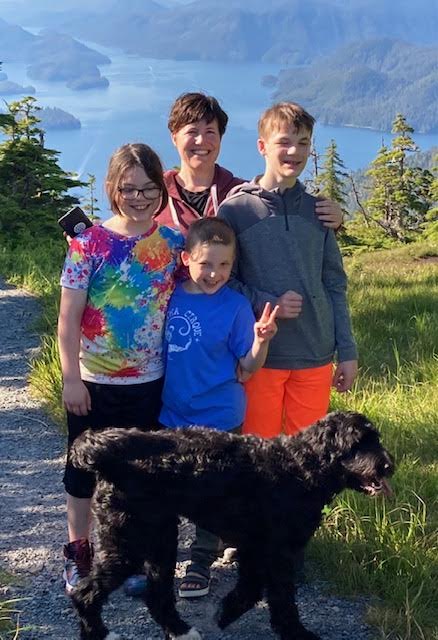
Melissa: It has helped me feel more connected to other families and the NFED community. This is invaluable in a state where we are one of only a handful of families with ectodermal dysplasia. And it has helped me connect more closely with my sister, who has a 5-year-old with XLHED.
Brian and Amber: Just interacting with other families and adults has been life-changing. We learned about Aquaphor and great summer camp opportunities. We made friends that we stay close with. We keep up on the latest medical information. We learned how to do a 504 plan that makes sense. We especially value our friendship with the Steele family in Iowa, since we visit our family in Iowa pretty frequently.
Would you recommend volunteering for the NFED to others who are able?
Melissa: I would encourage others to volunteer for the NFED. The staff and volunteers are wonderfully caring and generous. They are patient and understanding and will help you find a role in the organization that meets your needs. And they are passionate about their work. They connect, support, and empower.
Brian and Amber: Absolutely! It really pays off to be involved with NFED. We have met many folks via the Rare Disease Advocacy as well–sometimes, these neighbors don’t have a diagnosis or there is no foundation for their condition. They are all jealous of us, because we have such great support from NFED!
What have you learned from your volunteer experience?
Melissa: I have been inspired by the passion and dedication of others. I feel incredibly grateful to all our Alaska families for their hard and selfless work, reaching out again and again to our congressional delegation until we achieved 100% ELSA support. And I feel incredibly grateful to the NFED for their selfless commitment to our community.
Calling All Advocates
We thank the Brubakers, Wentzels and other Alaskan families for their persistence! May their example and success inspire you to keep advocating for ELSA. Telling your story does make a difference. You can email your legislator today to take action. And we urgently need your support to get ELSA passed during this Congress, so we don’t have to start all over again next year. As Melissa says, “we’re stronger, together!”
Advocate for ELSA